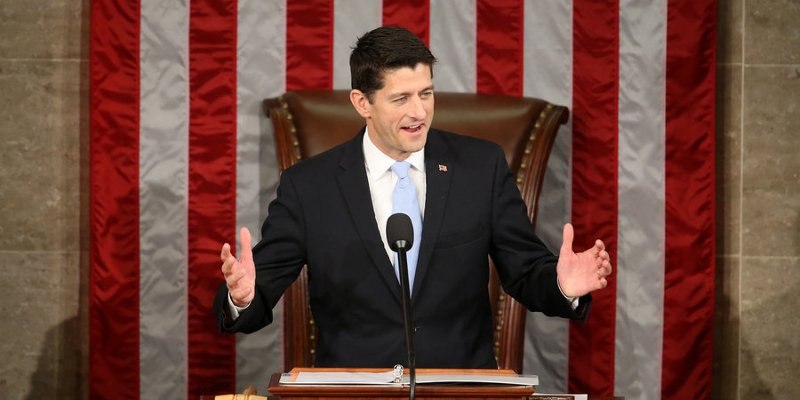Republicans view Paul Ryan as more conservative than Boehner, but they are divided about whether they should work more closely with Democrats or not
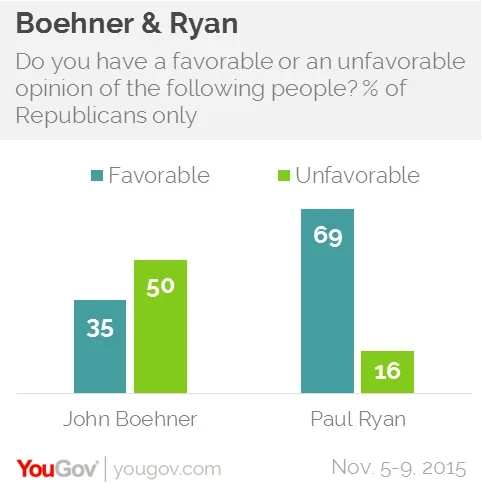
Newly-elected Speaker of the House Paul Ryan begins his term with strong support from Republicans in the latest Economist/YouGov Poll, especially when compared with the distrust Republicans had displayed towards his predecessor in the job, John Boehner. The Wisconsin representative is well-liked: more than two-thirds of Republicans have a favorable view of him.
Half of Republicans remain unfavorable towards Boehner; he faced widespread criticism from members of his own party in his last months in office, with negative poll ratings. By nearly two to one, Republicans in this week’s poll express disapproval of Boehner’s performance as Speaker, and by seven to one, they are glad he resigned the job.
Republicans do see Ryan as more conservative than Boehner, as well as more successful. Nearly half in this week‘s poll believe Ryan is more conservative than Boehner; less than one in ten think he is less conservative. And 46% say he will be more successful than his predecessor.
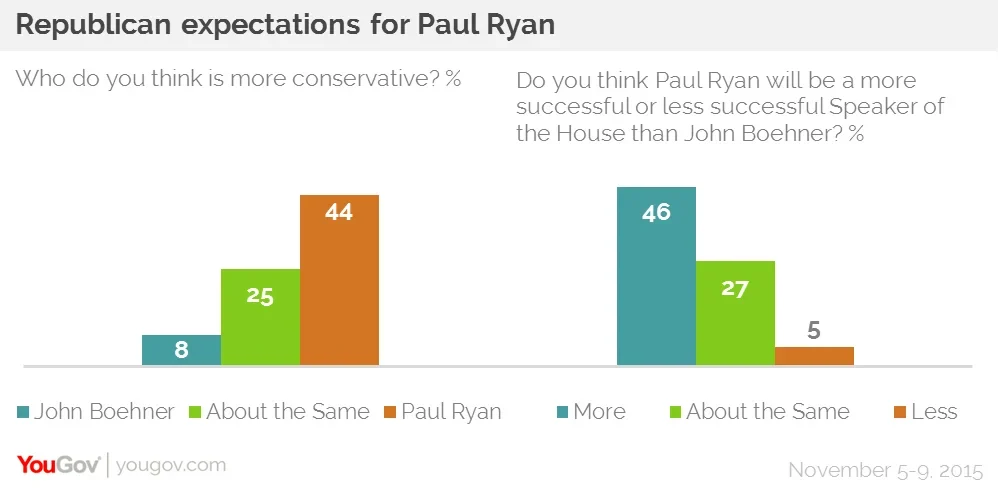
But they may not be expecting much difference when it comes to behavior: 60% of Republicans expect Ryan to be a compromiser – and not all Republicans want compromise with Democrats.
Republicans in previous Economist/YouGov Polls have said they would rather have representatives who don’t compromise. However, this poll suggests at least some current willingness to consider compromise – which most expect Ryan to do. In this week’s poll, 44% of Republicans believe Ryan should work with Democrats and President Obama, more than think he should oppose them even it if means Congress would accomplish less.
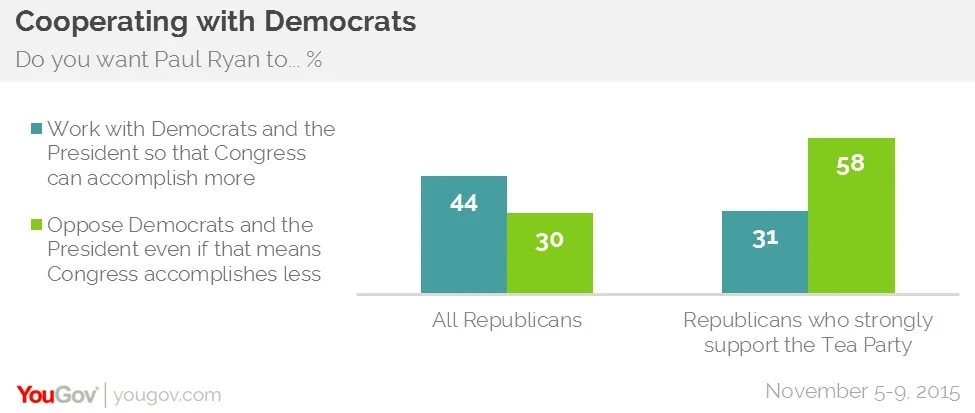
However, there is some discord within the party: 58% of Republicans who strongly support the Tea Party disagree and want Ryan to oppose Democrats, whatever the consequences.
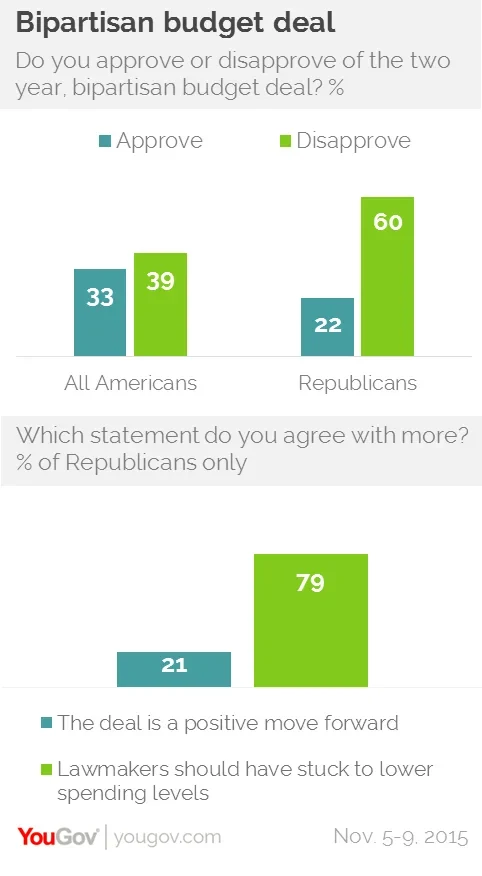
Boehner’s last deal – to get a budget package done before he left the Speakership – was one example of compromise that didn’t get a majority of Republican votes within the House of Representatives, and passed because of the votes of Democrats.
The deal doesn’t get the majority of rank-and-file GOP support either. By nearly three to one, Republicans disapprove. And by an ever greater margin, they believe it would have been possible to get even lower spending limits in return for a budget agreement.
Nationally, Americans are divided on the deal.
See the Economist/YouGov results
Economist/YouGov poll archives can be found here.
